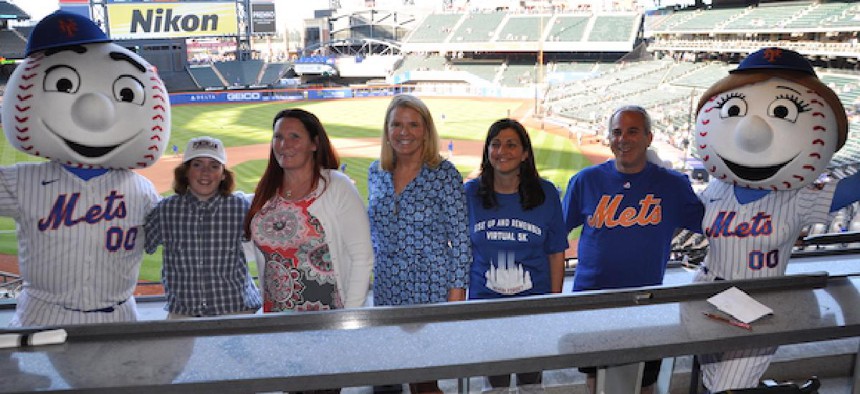Nonprofits
How Tuesday’s Children continues to support victims of 9/11
The organization’s executive director, Terry Sears, spoke with NYN Media about the nonprofit’s trajectory over the past 20 years and how it has expanded its mission.

Family Night Out hosted by the Mets ahead of Father’s Day for Tuesday’s Children families who lost loved ones on 9/11. Dan Brennan
After the devastating World Trade Center attacks that occurred on Sept. 11, 2001, the nonprofit Tuesday’s Children was founded to offer support to the 3,051 children that lost a parent in the attacks.
The organization was created by members of the New York City community to help families heal after the events of Sept. 11. Since then, the organization has expanded its programs and offerings to families who have been affected by terrorism, military conflict or mass violence around the world. After the deadly shooting at Sandy Hook Elementary School in Connecticut, which took the lives of 26 people, including 20 children, on Dec. 14, 2012, Tuesday’s Children lent its support to families who endured a loss, utilizing its expertise in long-term healing from traumatic events.
NYN Media spoke to Terry Sears, the executive director of Tuesday’s Children, about how the organization has grown over the past 20 years, how it has extended its services and why the victims of Sept. 11 still need support.
This interview has been lightly edited for length and clarity.
Can you tell me a little bit about how Tuesday’s Children was formed and how it has grown as an organization over the last two decades?
We were founded with really a special focus on what we now know were 3,051 children (who lost a parent on Sept. 11). That was our initial mission but you don't get or earn the trust of a parent, especially after a traumatic loss, unless you establish the trust of that surviving parent. So we did most of our family engagement, which was at the core of our long-term healing methodology, by bringing families and kids together for fun family events, such as ball games and picnics – and we still do that today. That’s a non clinical approach to getting to know families as well as earning their trust and then hopefully getting them into our resilience-based, skill-based programming that we still deliver to this day, to either the 9/11 community or to our nation's Gold Star families (survivors of military personnel lost during active duty service). (Our programs and services include) mentoring and leadership programs, career mentorship, life management for surviving spouses and wellness programs.
After the 10 year anniversary (of 9/11), we opened our doors, we started strategizing and looking at the Gold Star family population, to see if there was a deficit in services for that group. And we discovered that while there are 45,000 nonprofits that serve veterans’ causes across the nation, less than 1% cater to Gold Star families.
What kind of support do victims and survivors continue to need, 20 years after the attacks?
If you were to ask me in year one, “would the families and kids still need support?” I probably would have been like, “I don't know, that's kind of a long time.” But I will tell you that there are secondary losses. There are kids that have lost both parents. There was COVID-19, which was very reminiscent, in some ways, of 9/11, to a lot of the families. I think initially, it (the pandemic) was, for many, overwhelming and scary, and unexpected.
We were able to get our programs for 9/11 families on Zoom quickly and saw an increase in people wanting services, wanting programmatic support and feeling that their kids were suffering in different ways because of COVID-19.
Looking back on the past 20 years, what is something you think people should remember about the World Trade Center attacks and their aftermath?
I think there is an element of fear among 9/11 families, after two decades, that they will be forgotten. This exodus from Afghanistan has many of our Gold Star families, particularly the surviving spouses, wondering if their loss and sacrifice was all for naught.
I think that those who are trying to educate the young people about 9/11, (should keep in mind that you’re teaching) people that weren't living then and that it’s a historical event, not something that is kind of integrated within their emotions in the same way for all of us. I think that it’s important that this (the history of 9/11) does not get watered down over time and that people understand what the nation was like back then and that these people were murdered. I don’t use that word very much, because it's kind of dramatic, but it's true.
NEXT STORY: Does Alphonso David have a case?
